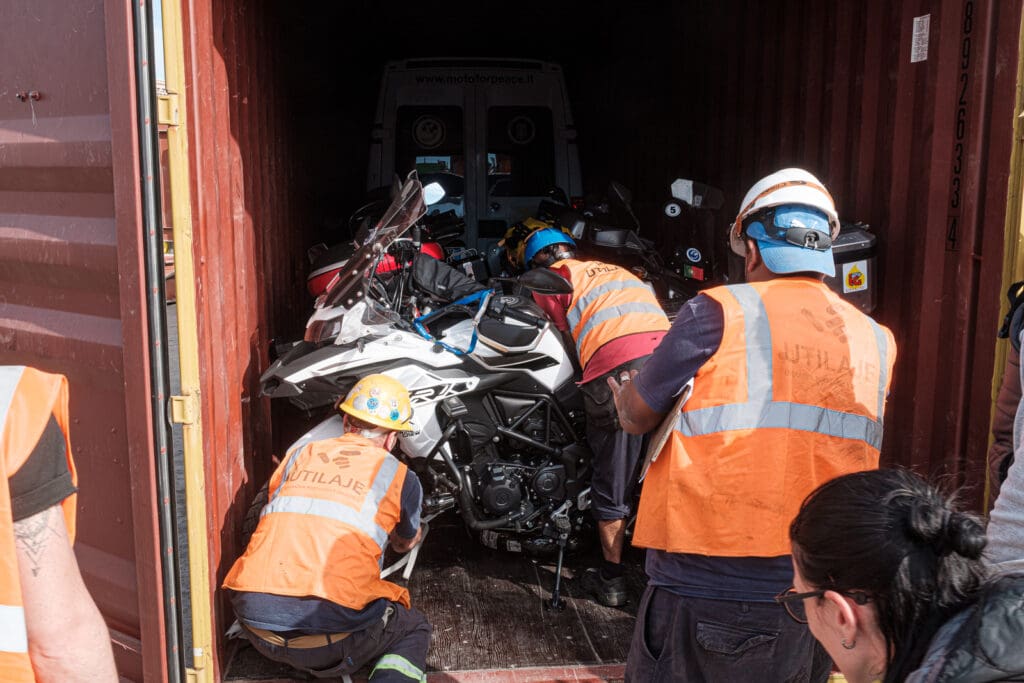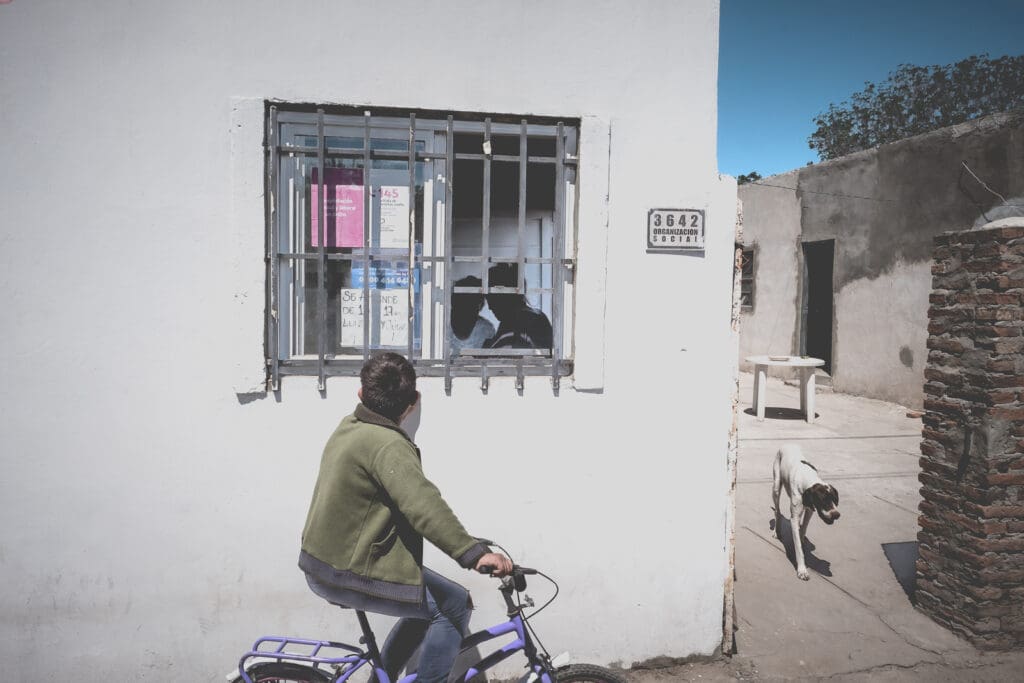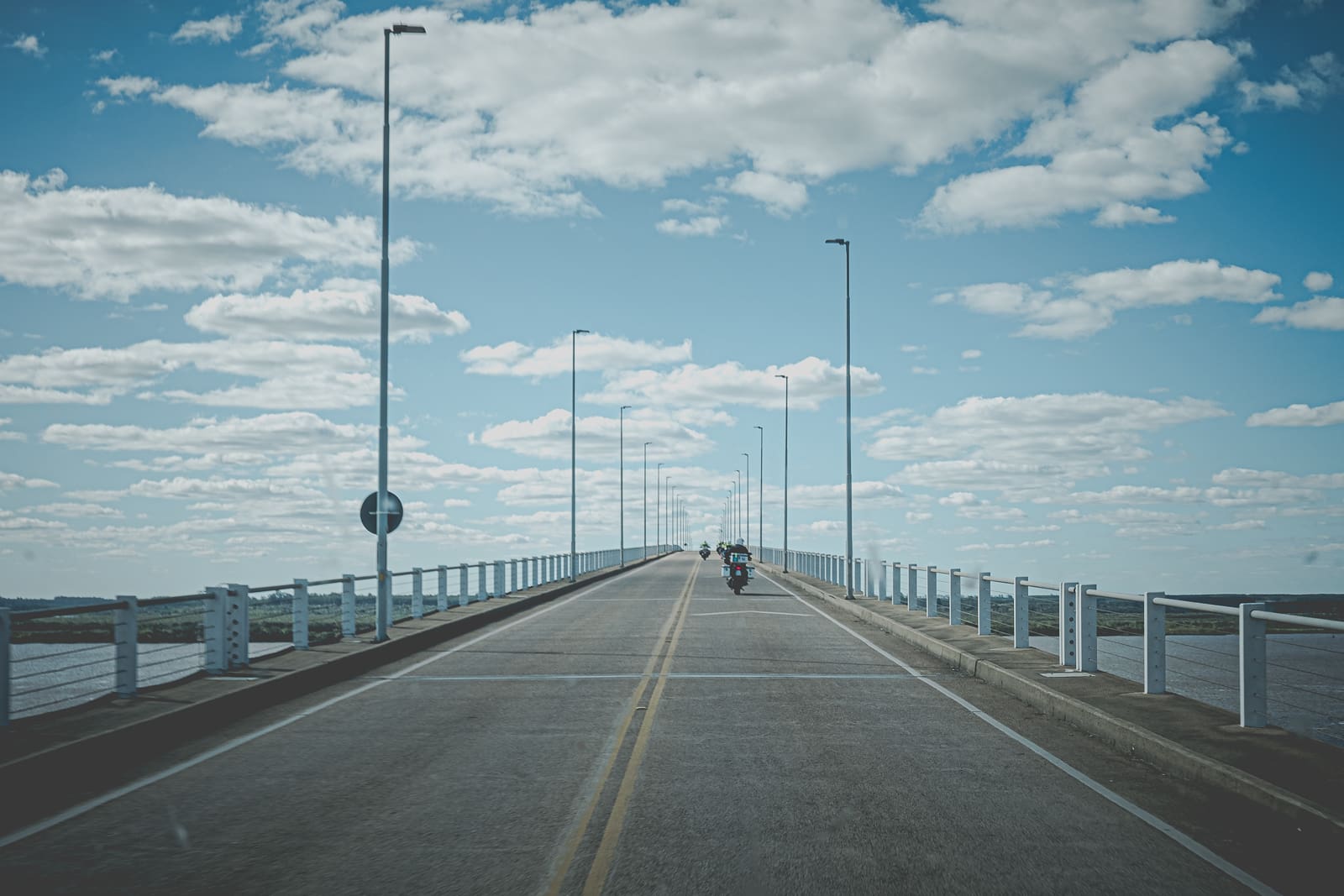We spent about a week in Montevideo. The container with the motorcycles and support van arrived several days late. Then, there were the customs procedures, which, as is often the case, have uncertain time frames. Tired from the plane ride that lasted a couple of days because of the many stopovers, we enjoyed spending the weekend in the shade of the trees of Canelones, in the Ciudad de la Costa on the outskirts of Montevideo where we were staying. Then, however, suspense set in. You can’t wait to get on the road when you set out on a trip like this. Motorcyclists know this well. You can feel a frenzy pawing through your veins that is hard to describe. The hours begin to pass slower, and one finds oneself bridled in the boredom of passing the time. Waiting becomes a frustration. An attempt is made to speed things up with a few phone calls. But the time needed is what it is. It’s a matter of waiting. But it is permanently attached to the phone, waiting for a message. Unable to arrange anything because customs could call us at any moment.
Boredom. Frustration. Waiting. Impatience.
Then comes a message, “Come to the port by 3 p.m., no later.” We are based within an hour of the port. And the message arrives at 2 p.m. sharp. Get the necessary documents in a hurry. Find a cab. Immerse yourself in the traffic of the capital city. “But is this the fastest way?” We asked the taxi driver who made us go downtown when in previous days we had gone to the city by the coastal road.” “Yes, of course, it’s the shortest,” he confirms. The rush to get there blinds us. Hands drum frantically on legs. Every red light becomes a personal affront. On the navigator, we look hopefully at the thinning miles. “We’re almost there. We’re almost there,” we repeat with every meter. Finally, after a bend, the extensive harbour opens before us. Cranes tower over stacks of piled containers. We have a few hours before dark. We have to get busy.

The ritual of the container
Having hurried through the initial paperwork, we headed for our container. Dockers are waiting for us there for the opening ritual. One of them asks for confirmation that everything is okay. We checked the seal. “Yes, all right, come on, let’s open!” we reply to him. A large cutter blasts the blockade. The doors open, and we can finally hug the bikes and van again. With a team effort worthy of formula one pit stops, we arranged to put the wheels back on the van – removed to make it fit inside the container -, mount the roof rack, reattach the battery to the bikes, and a few other things so that we can get back to base as quickly as possible. The clock is ticking, unforeseen things happen-two bikes are entirely out of gas. We look for a gas station nearby, but without the last documents, we cannot leave. To get them, however, we have to take the vehicles to another area of the port. Fortunately, Miguel arrives. Miguel is the police officer who, from day one here, has been taking care of us. Miguel is a kind-hearted person. He arrives with his eight-year-old son after picking him up from school. He loads a couple of us into the car, takes us to do the paperwork and gets a gas tank. The situation was again unblocked in the blink of an eye. And here we are on the road.
The departure
The next day we set up the motorcycle and van. The following day, we left. Before leaving Montevideo, we made a stop at the Italian Embassy. They had organized light refreshments to wish us a safe journey, inviting representatives of institutions from Germany, Turkey and Portugal, as well as Interpol, Police and the Apostolic Nuncio. Handshakes, laughter, hugs, great coffee, delicious cakes, and the time flew by. We have to go. The bikes start-up and we all wish the “recorrido” well. We will meet here again in two months in an evening dedicated to us in which we will recount the expedition. The affection we feel is heartwarming, like the pink Tupperware with a cake inside for the trip. “Take care: eat, sleep, and don’t get scrambled by all these men,” Mrs. Anna, the wife of the Italian Ambassador to Montevideo, warmly tells us as she hands us the container. A gesture of kindness I will not forget.
Since that morning, we have not stopped. We ground miles northward. We are two days behind schedule. From Montevideo, we arrived in Rosario. The Community of San Joaquin and Santa Ana welcomed us here late in the evening. We were late because, at customs with Argentina, they had made us empty the van to check it. Two hours lost. Despite this, however, they were there for us. They waited for us to eat together. Rice, chicken made Argentine-style over hissing embers, topped with “chimi” (chimichurri), and potato salad. Sincere conviviality culminated in a traditional group dance.
Feeding those who have nothing
The following day we went to their “merendero,” a comedor that twice a week offers free meals for those in the barrio who cannot afford groceries. Say your name and receive a serving or two of pasta with chicken to eat at home. There were many people in line. Many more children than adults.
Tomorrow, we will start again. The journey is long. But after each meeting, the heart is already a little heavier.



